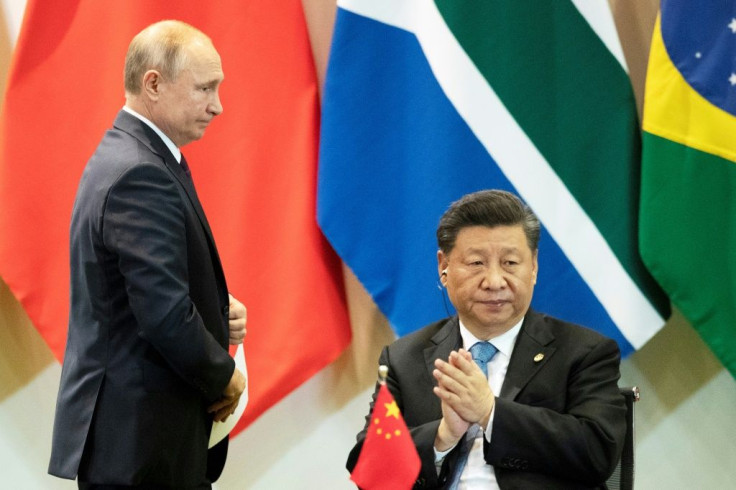Will China's Risky Game With The Russian-Ukraine War Backfire?

Most of the world is taking a clear stand against Russia's unjust war against Ukraine. Leaders of industrialized nations have condemned the war and taken measures to cut off Russia from the global economy.
But not China, which abstained from the vote to denounce Russia's invasion of Ukraine in the U.N. General Assembly last week.
According to Juscelino Colares, a professor of business law at Case Western Reserve and co-director of the Frederick K. Cox International Law Center, Beijing has taken a self-serving approach to international developments.
"China's response to Russia's war of aggression and crimes against Ukraine and its people reflects, predictably, the Chinese Communist Party's typical amoral, self-serving approach to international developments," he said. "China has so far made only timid remarks regarding Putin's war, urging caution and calling for 'peace,' yet blocking or abstaining from U.N. Security Council action against Russia."
Colares said he is puzzled by the timing of Russia's invasion of Ukraine.
"Remarkably, Putin's invasion of Ukraine only four days after the closing ceremony of the CCP-organized Winter Olympics demonstrates another predecessor to the current round of cynical close coordination between the two genocidal regimes," he said.
Then there's China's decision to buy up Chinese commodities when other countries shun them.
"More of that coordination is demonstrated by recent massive purchases of coal and long-term commitments to supply China's crescent need for oil and gas, only one-fifth of which China can source domestically," said Colares.
The latest coal-supply deal is part of growing trade between the two countries, which has soared since 2014, the year Russia annexed Crimea, and it is expected to reach $200 billion by 2024, according to Reuters.
Growing economic ties between the two countries bring Moscow closer to Beijing, ready to promote its agenda in the Taiwan Strait and the South China Sea. That's a significant threat to the global economy and peace, as discussed in a previous piece here.
Still, China's duplicitous game may backfire, as the world may begin sanctioning China. That's something that worries Beijing, said Colares.
"Despite much overt and covert cooperation on economic and geopolitical fronts, it is not surprising that the CCP is concerned about the possibility the current conflict might lead to secondary (commercial) sanctions against China for its unwillingness to stop doing business with Russia," he said. "So, China will keep playing the duplicitous game it has played since before the invasion. CCP also benefits from a West focused on the European theater and may be as dangerous as ever."
As a result, it may support and re-enforce its aggression in the South China Sea, Taiwan Strait, and Indian border.





















